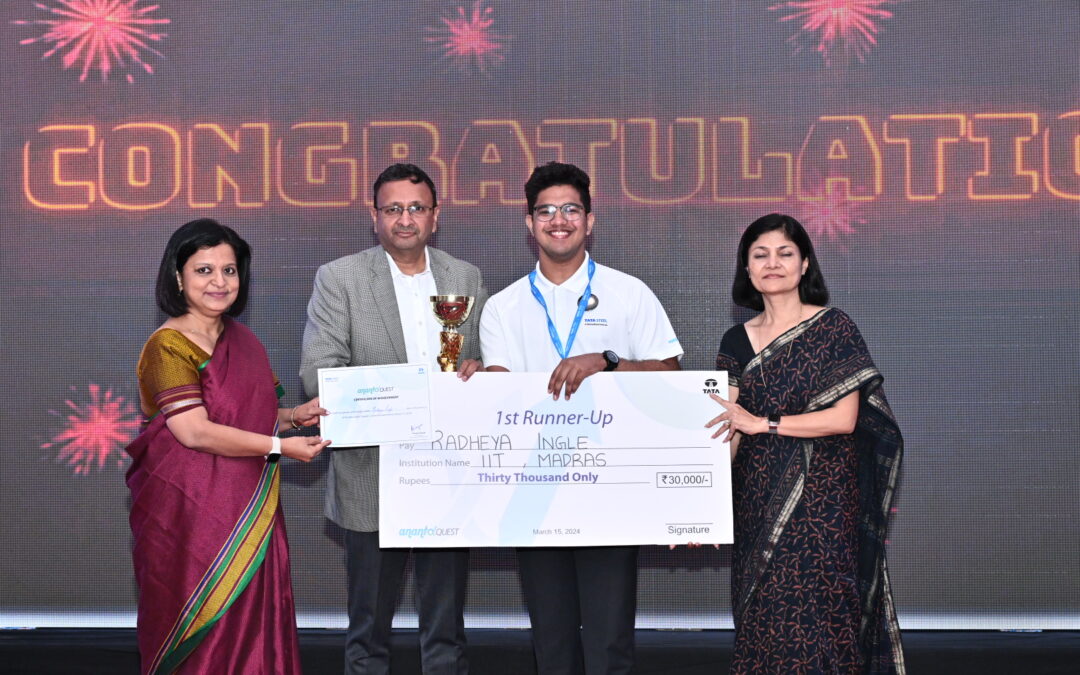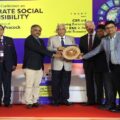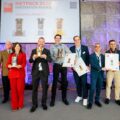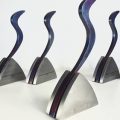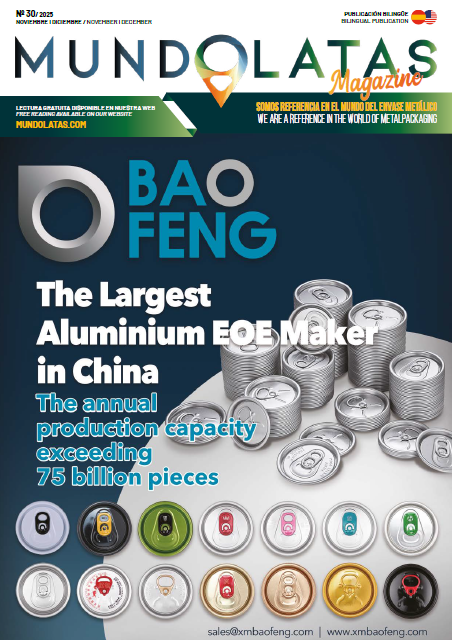⦁ An exclusive competition designed for students who have disabilities.
⦁ The competition was attended by more than 160 teams from business and technology schools.
⦁ The ‘Alchemist’ team from the Indian Institute of Management (IIM) in Trichy has been named as the winner of the competition.
Tata Steel has announced the winners of the inaugural Ananta Quest, a first-of-its-kind case study competition created especially for disabled students from technology and trade schools across the country. Among the 11 teams that reached the final, the jury selected three winners.
The competition was won by the “Alchemist” team from IIM Trichy, while the second place went to the “Madras” team from IIT Madras. Also in second place were the “Universe” teams from IIT Kharagpur and ISM Dhanbad. The closing and award ceremony was held in Jamshedpur on March 15, 2024 in the presence of students and senior executives from Tata Steel.
The teams that managed to win in the contest received a cash prize of Rs. 50,000 for the first place, Rs. 30,000 for the second place and Rs. 20,000 for the third place. In addition, the finalists of the competition, who belonged to 11 different teams, were offered the opportunity for a paid internship or an interview prior to their possible placement at Tata Steel, depending on which academic year they were in.
According to Atrayee Sanyal, vice president of human resource management at Tata Steel, the success of the first Ananta Quest demonstrates our commitment to being an equal opportunity employer. The enthusiastic and determined participation of these students is a great source of inspiration for all of us. This event clearly demonstrates our dedication to creating a diverse and inclusive work environment. On behalf of everyone at Tata Steel, I congratulate the winning teams and thank all the participants for making this competition a great success.
Ananta Quest aims to provide an opportunity for seniors and freshmen with disabilities to demonstrate their skills and ideas, with the intention of bridging the gap between education and the world of work. In its first edition, the event received more than 550 applications and presentations from technology and business institutions from all over the country, including prestigious universities such as IIT and IIM.
Case studies were conducted in four different areas: sustainability, marketing and sales, human resources and business strategy. The jury consisted of three people, including a vice president of human resource management, a vice president of safety, health and sustainability, and a director of learning and development and diversity. The jury members analyzed the participants and winners according to their ability to address the proposed problem, find effective solutions and evaluate the commercial impact of their ideas.
At Tata Steel, work is based on merit and diversity. In 2015, the “MOSAIC” platform was created to promote diversity, equity and inclusion in the company. Conscious actions have been taken to break down stereotypes and create an egalitarian environment. Tata Steel’s goal is to achieve a 25% diverse workforce by 2025.

